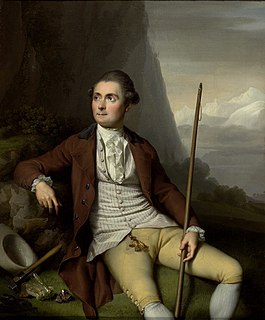A Quote by Ruth Benedict
The adequate study of culture, our own and those on the opposite side of the globe, can press on to fulfillment only as we learn today from the humanities as well as from the scientists.
Related Quotes
Historians of a generation ago were often shocked by the violence with which scientists rejected the history of their own subject as irrelevant; they could not understand how the members of any academic profession could fail to be intrigued by the study of their own cultural heritage. What these historians did not grasp was that scientists will welcome the history of science only when it has been demonstrated that this discipline can add to our understanding of science itself and thus help to produce, in some sense, better scientists.
The theory of the earth is the science which describes and explains changes that the terrestrial globe has undergone from its beginning until today, and which allows the prediction of those it shall undergo in the future. The only way to understand these changes and their causes is to study the present-day state of the globe in order to gradually reconstruct its earlier stages, and to develop probable hypotheses on its future state. Therefore, the present state of the earth is the only solid base on which the theory can rely.
What use could the humanities be in a digital age? University students focusing on the humanities may end up, at least in their parents' nightmares, as dog-walkers for those majoring in computer science. But, for me, the humanities are not only relevant but also give us a toolbox to think seriously about ourselves and the world.
Throughout history, the arts and humanities have helped men and women around the globe grapple with the most challenging questions and come to know the most basic truths. In our increasingly interconnected world, the arts play an important role in both shaping the character that defines us and reminding us of our shared humanity. This month, we celebrate our Nation's arts and humanities, and we recommit to ensuring all Americans can access and experience them.
We all have choices. We can build walls or we can build bridges. We can give our talents to creating weapons of annihilation, as so many scientists have done, or we can work to find solutions to humanities greatest problems. Our orientation is found not only in our acts, but also in the policies we support or oppose.
Protestant parents still keep a Bible handy in the house, so that the children can study it, and one of the first things the little boys and girls learn is to be righteous and holy and not piss against the wall. They study those passages more than they study any others, except those which incite to masturbation. Those they hunt out and study in private.
Everybody has a nightmare, and everybody apparently has falling dreams, and everybody has the drowning dream, and everybody has certain kinds of sexual manifestation dreams, as well as our stress dreams; I didn't study for the algebra test, I didn't study for my driving test, you know, all those dreams. I still have those dreams, and it's just such an interesting thing that our mind can turn against us, our own mind, you know we all have.





































